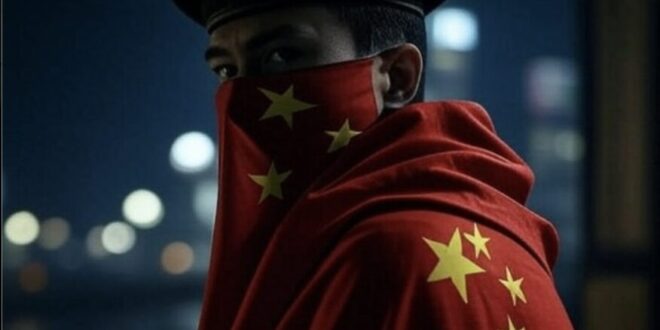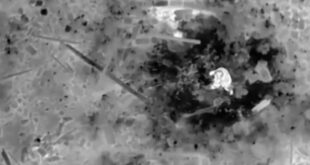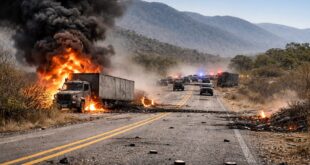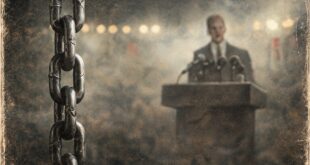COMMENTARY by Susan Katz Keating
The gatekeepers in the U.S. security world are suffering from a dangerous case of collective amnesia when it comes to China. Witness the shocked undertones surrounding reports on two recent cases of Chinese nationals being charged with smuggling biological materials into the United States. The headlines sounded alarming, but they’re not new. They’re part of a long-standing pattern of Chinese infiltration—systematic, strategic, and state-sponsored.
I’m hearing rumblings that national hearings may be convened to address this issue. If the hearings come to pass, lawmakers should be given a cache of memory assistance devices. Perhaps that will stop them from succumbing anew to the amnesia that has plagued our China-watchers for decades.
I first heard about this collective memory lapse via my old friend, Robert Crowley. An expert on the Soviet KGB, Crowley had been the CIA’s assistant director for clandestine operations during the Cold War. When I knew him, Crowley was livid that our national secrets were being targeted by China – and that little was being done to guard the vaults.
READ MORE about Chinese espionage against the United States
China views the U.S. as a nation that leaves its gold in the streets, Crowley told me. And, he added, Beijing eagerly scoops up the unguarded treasure. Especially when it has a well-secured agent in place. Sometimes, the agents are caught.
In 1986, it emerged that a Chinese mole, Larry Wu-Tai Chin, had spent 30 years deeply burrowed within the CIA. He was a trusted employee who began working for the U.S. during World War II, as an Army translator. Later, when Chin went to work for the CIA, he secretly funneled valuable information to his masters in Beijing. Chin was so good at deception that he only was caught when a defector revealed the truth. Former CIA chief William Colby himself told me that the revelation came as a total shock.
While the CIA was freshly reeling from the Chin case, it emerged that China had stolen key technology on U.S. weapons systems. Again, the revelation came as a shock.
The 1980’s cases should have prompted reviews, revamps, and lockdowns. But China continued to get into – and out of – the secret vaults.
Senator Richard Shelby raised the alarm in 1997, saying China was “the number one intelligence challenge of the 21st Century.” The challenge went unaddressed.
In 1999, a House select committee found that Beijing stole information about warheads for weapons systems including the Minuteman II and III missiles.
In 2006, Lockheed Martin employee Ko-Suen Moo was charged with trying to send an F-16 fighter jet engine and other high end military equipment to Beijing.
Each time and afterwards, U.S. officials expressed fresh levels of shock and outrage.
The people in charge of guarding our national secrets, it seems, are stuck in a half-century old time warp, when the U.S. focused on the threat from Soviet-era Moscow.
Beijing meanwhile has pressed on.
A former CIA officer, Alexander Yuk Ching Ma, was arrested in 2020 on a charge that he conspired to send Top Secret information to the PRC.
Senators Marco Rubio and Mark Warner sounded the alarm.
“This is our watershed moment and we must stand our ground,” they wrote in a joint statement.
Years later, it emerges that we have not done so. In 2023, additional “watershed moments” occurred. Among them, the Chinese spy balloon incidents, when several entered U.S. airspace.
The balloons at least had a silver lining, according to Alan Kohler, the former Assistant Director of the FBI’s Counterintelligence Division.
“The American public could look in the sky and see for themselves what many of us already knew: The Chinese government is spying on us,” he said.
During my long-ago conversations with Crowley, the old spy chief told me the PRC believes that the U.S. is unable or unwilling to learn from its own lapses.
So now there are fresh incidents with smuggling in the biological materials. What else has escaped notice?
At some point, a genuine watershed moment will occur, and our gatekeepers will convene another emergency hearing. When that happens, they should bring their fish oil supplements, polyphenols, or mnemonic devices – anything to help them remember the truth. By then, of course, it might be too late. Because this isn’t a new problem. It’s an old one that we’ve failed, over and over, to take seriously.
Susan Katz Keating is publisher and editor in chief of Soldier of Fortune. She has written frequently on Chinese espionage.
 Soldier of Fortune Magazine The Journal of Professional Adventurers
Soldier of Fortune Magazine The Journal of Professional Adventurers






